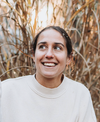All Research is Storytelling

There's an adage about writing well: you need to know the rules to break the rules.
And the most impactful writing breaks the rules, often.
When it comes to understanding how to find, read, understand and summarize medical research, the same principle applies. You need to know the rules to break the rules.
Because I'm going to let you on a very big secret. Understanding this is genuinely a matter of life and death. It's also a matter of your sanity, your health, your happiness and your freedom. It profoundly impacts your ability to make sense of the world and to lead others towards the source of their own health, their own power.
All research is story-telling.
I want you to allow yourself to relax and open so that this sentence can resonate with you like a tuning fork.
All research is story-telling.
This is more notable in medical research, where the outcomes of the protagonists create the largest pay-offs of almost any industry in the world.
I'm allowed to say this with certainty and authority because I know the rules very, very well. I also know the story-boarding process, how the characters are played, the extras chosen, how the scenes are laid out and scripted. I know who the Patrons are. Most of this information is published freely.
What kind of storytelling? Storytelling takes many forms: oral traditions pass on epics and sagas. And of course there are plays, shows, movies, novels, poetry . . .
When people analyse these stories, literary critics, if you will, they all agree that Industry funded research is something a kin to reality T.V. You watch the Osbornes or the Bachelor and you are viewing something objectively real and totally fake and created in someone’s head at the same time.
But perhaps a better way to understand Industry-funded medical research is something akin to wrestling, a form of scripted entertainment presented as a legitimate competition:
“Wrestling shows, like those of other professional wrestling promotions, are not legitimate competitions but rather entertainment-based performance theater, with storylines that are driven, scripted, and partially choreographed matches; however, matches frequently include moves that can put performers at risk of injury, and even death, if not performed properly . . . Wrestling is not always false, but it is usually scripted. The lines have been practiced. The matchups have already been decided. The wrestlers are not attempting to injure one other, but rather to amuse the adoring crowds that pack arenas across the world on a regular basis.”
Here, the adoring crowds are consumers of the products being tested head to head in the “choreographed matches”, lured by endless broadcasts about "the winner's" superiority on all major American TV networks.
Writing a good screen play is of course important but equally so is casting (do the researchers have crowd appeal, PhDs, MDs, associated with a famous institution) and finding cooperative extras (subjects). But of course any who stick out or distract from the main plot can be cut in post-production.
Some medical research (a minority, studies find) can be considered non-fiction. But even non-fiction has a perspective, an angle, a place from which it stands and views things to tell its stories about the world.
Part of medical research's story is that other kinds of stories aren't real. It tells a story that its version is non-fiction and that subjective experience, poetry, drama and romance are less real.
But of course all stories have authors. One important rule of writing in this genre is to use the passive voice. Just as no one wants to see the director standing in the wing shouting “enter scene left!!”, or the narrator shatter the spell by breaking the fourth wall, the manuscript must be written as if no one wrote it at all. But it's the authors that are telling this story and then denying their authorship.
"This research is objective truth, handed on down! I simply scribbled furiously as the truth revealed itself, whispered into my ear from an invisible mouth." This manuscript was funded by Pfizer.
So does this mean that we should turn our backs on research, ignore it completely, only focus on what we can see with our own two eyes?
There's nothing wrong with storytelling. It's what gives life meaning. It's an endeavor as old as human culture.
If you want to find these stories so that you can better understand your life, your health, how nature works, then here are some tips:
Be clear on the question that you want to answer.
If you're looking to read about Truth with a capital T then read the great source books of human civilization such as the Nei Jing, the Tao Te Ching, The Upanishads, the Holy Bible, the Quran, the Kabbalah, Meditations, etc. You will not find it in Pubmed.
You can also experience Truth directly through your own bodily experience and direct observation.
Be clear on the story you want to tell.
That's always been my greatest source of strength in this area. Understanding that all medical research is story-telling allows you to tell better stories about it.
Because here’s another (totally unsecret) secret: the medical industry has known that all medical research is storytelling for a loooooong time, well documented from the 19th century. For example Arthur Sackler, who was inducted into the Medical Advertising Hall of Fame 1997 (the existence of such an institution cements my thesis), used his “medical journal” The Medical Tribune to sell tranquilizers like Librium and Valium as a treatment for college students under stress. His company went on to market Oxycontin and cause the opioid epidemic, which has killed over 700,000 people to date, mainly through “stories” of pure fiction about safety and efficacy that came directly from the Purdue marketing department and didn’t even require the Theatre of published research.
The biggest problem of the integrative medicine community is to try to actively not understand this, sticking its fingers in its ears and continuing with the childish posture that peer-reviewed research is the objectively written down revelations of Nature or Truth, an ordeal and right of passage that we have to successfully overcome if we want to sit at the Big Kids table. We continue this delusion at everyone’s peril. If you know what story you want to tell, then you can collect the materials to write it well, without seeming to break any of the rules.
I say "seeming" to break any of the rules because the First Rule is to protect against having a bias. But this isn't possible. So the alternative is to pretend you don't have a bias or to own your bias.
I actually spoke at an Acupuncture Research Conference where I said this and the head of the National Institutes of Health Department for Complementary Medicine Research told me during the Q&A that I didn't mean to say that I was "biased", that I was using the wrong word . . . I assured her that this was the correct word. And that we all have biases, including researchers. Including her. It didn't go down well.
Owning your bias is counter to her religion of "Scientism" where we're not allowed to have a bias as researchers. It's considered to be Evil. This is the original sin that researchers can't wash off since to have a limited perspective is to have a bias and to have a limited perspective is to be human. Your bias exists before your research question is formulated. It's the glasses that you see through that you don't even know that you're wearing.
All attempts to minimize bias (blinding, randomization, etc) still come from a particular worldview.
What's the largest determinant of the results of a study? Is it objective reality? Superiority of one drug or procedure over another?
No. It's the research question, of course.
When researchers receive funding, their experiments are driven by the power of someone else's bias. The funders are crystal clear on what their biases are, the stories they are paying the researchers to tell.
So use Google Scholar, be clear on your research question, be clear on the story you want to tell, learn the basic rules of "grammar" (the evidence hierarchy, study design, Power calculations and P-values etc) and tread lightly. Set a timer. Have fun. The ones who seem most evangelical about the Objective Truth of the Church of Science are the ones with the most funding. ‘In “The Science” We Trust!’
Navigating these waters is not always easy. But doing it well you can lead you and others to something truer and more beautiful. You can give yourself permission to fully trust yourself. Many people who are not indoctrinated in Scientism simply turn their back on it. And this is a very sane and appealing option.
I've chosen to turn towards it so that I can use the authority of Science to lead people to restore their own authority to its rightful place: their own body, mind and soul. You are an ecosystem of 67 trillion cells, half of which aren’t even human. You are the Cosmos, God in Human form.

